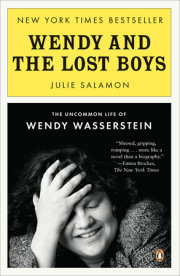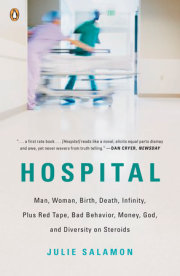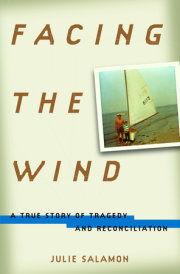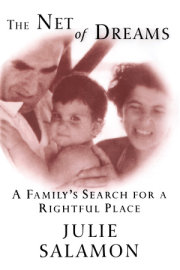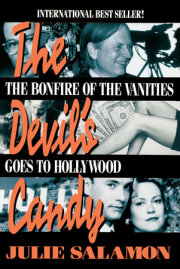Winner of the Pulitzer Prize, the first woman playwright to win a Tony Award, Wendy Wasserstein was a Broadway luminary. But with her high-pitched giggle and unkempt curls, she projected an image of warmth and familiarity. Everyone knew Wendy Wasserstein. Or thought they did. In
Wendy and the Lost Boys, Salamon delicately pieces together the many fractured narratives of Wendy’s life—the stories (often contradictory) that she shared amongst friends and family, the half truths of her plays and essays, the confessions and camouflage present even in her own journal writing--to reveal Wendy’s most expertly crafted character: herself.
Born in Brooklyn on October 18, 1950 to Polish Jewish immigrant parents, Wendy was the youngest of Lola and Morris Wasserstein’s five children. Her mother had big dreams for her children, and they didn’t disappoint: Sandra, Wendy’s glamorous sister, became a high-ranking corporate executive at a time when Fortune 500 companies were an impenetrable boys club. Their brother Bruce became a billionaire superstar of the investment banking world. Yet behind the family’s remarkable success was a fiercely guarded world of private tragedies.
Wendy perfected the family art of secrecy while cultivating a densely populated inner circle. Her long time friends included theater elite such as playwright Christopher Durang, Lincoln Center Artistic Director André Bishop, New York Times theater critic Frank Rich, the many women of the theater for whom she served as both mentor and ally, and countless others. Yet almost no one knew that Wendy was pregnant when, at age forty-eight, she was rushed to Mount Sinai Hospital to deliver Lucy Jane three months premature. The paternity of her daughter remains a mystery. At the time of Wendy’s tragically early death less than six years later, very few were aware that she was gravely ill. The cherished confidante to so many, Wendy privately endured her greatest heartbreaks alone.
At once a moving portrait of an uncommon woman, and a nuanced study of the generation she came to represent, Wendy and The Lost Boys uncovers the magic of Wendy’s work. A daughter of the 1950s, an artist that came of age during the freewheeling 1970s, a power woman in 1980s New York, and a single mother at the turn of the century, Wendy’s very life spoke to the tensions of an era of great change, for women in particular. Salamon brings each distinct moment to vibrant life, always returning to Wendy’s works—The Heidi Chronicles and others—to show her in the free space of the theater. Here Wendy spoke in the most intimate of terms about everything that matters most: family and love, dreams and devastation. And that is the Wendy of Neverland, the Wendy who will never grow old.


